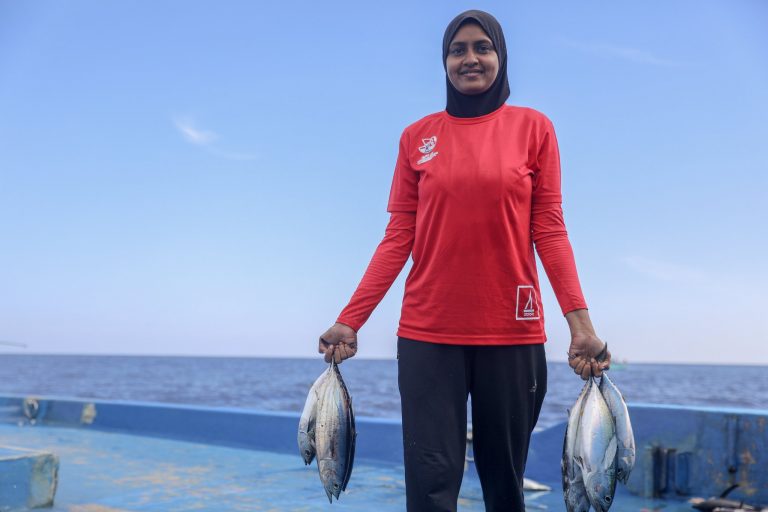One-by-one tuna fisheries often lack the influence and resources to ensure their rights and needs are protected by decision-makers on both a local and global scale. It’s for this reason that we work with fishery organisations and governments on regulations that ensure the conservation and responsible management of tunas, contributing to a more fair and healthy world.

One-by-one tuna fishing methods have been practiced for hundreds of years by many coastal communities throughout the world?

Global pressure on tuna resources is increasing and one-by-one fishing communities are competing against highly industrialised fleets for access to tuna resources and market share?

Women participate throughout one-by-one supply chains both directly and indirectly, but frequently their roles are undervalued by private stakeholders and overlooked by public policies?

Our work is aligned with a range of the Sustainable Development Goals (SDGs) and their respective targets, as laid out in the ambitious 2030 Agenda for Sustainable Development. We are determined to effectively contribute to the SDGs and were selected to help facilitate the first ever SDG traineeship in partnership with the SDG House and TheRockGroup.
We actively work with global initiatives like the UN Global Compact, the FAO Voluntary Guidelines for Small Scale Fisheries, and the Global Dialogue on Seafood Traceability (GDST).
Our observer status with the United Nations Conference on Trade and Development (UNCTAD) allows us to gain real insights and scope in taking a social sustainability approach to fisheries development.
As tuna species are highly migratory, management of tuna populations span wide geographical areas that are organised into Regional Fisheries Management Organisations, or ‘RFMOs’. The five global tuna RFMOs are:
- ‘Commission for the Conservation of Southern Bluefin Tuna’ (CCSBT)
- ‘Indian Ocean Tuna Commission’ (IOTC)
- Western & Central Pacific Fisheries Commission (WCPFC)
- Inter-American Tropical Tuna Commission (IATTC)
- International Commission for the Conservation of Atlantic Tunas (ICCAT)
These RFMOs meet annually to decide on fisheries measures such as catch and effort limits, monitoring measures and enforcement obligations.
IPNLF actively participates in three RFMO’s; ICCAT, IOTC, and WCPFC, and has observer status in IATTC. We advocate for measures that will help ensure healthy tuna populations, reduce the use of fishing methods that pollute and negatively impact biodiversity, and fair management outcomes for small-scale fisheries and developing coastal states, in line with international law
Latest Activities and News